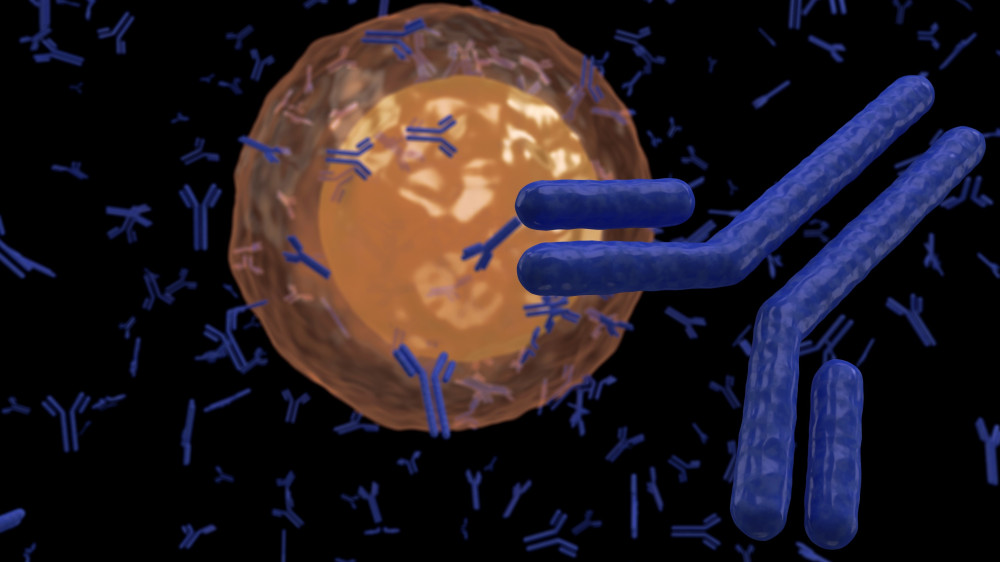Recommendations to accelerate the replacement of animal-derived antibodies

Non-animal derived antibodies (NADAs) and non-antibody affinity reagents (ARs) support reproducible science that avoids the use of animals, but uptake among the research community remains low. We have published a report of a meeting held last year to discuss challenges and develop recommendations for increasing their use in scientific research.
Antibodies are widely used as tools in research to detect the presence of specific targets in biological samples. It is estimated that one million animals per year are used in the EU alone for antibody production [1], despite the availability of technologies that can replace animal-derived antibodies in experiments. In June 2023 we brought together stakeholders from across academia, industry (including antibody manufacturers), journals, funders and government, to develop a consensus strategy to accelerate the uptake of NADAs/ARs and recognise their scientific and animal welfare benefits. The report includes recommendations from the workshop, summarises the benefits NADAs/ARs offer and outlines the steps we will take to support scientists adopt them.
What are the differences between traditional antibodies and non-animal derived alternatives?
Research antibodies are traditionally produced by inoculating animals (usually mice or rabbits) with an antigen of interest to induce an immune response. The antigen-specific antibody is then recovered from the animal – either directly from the blood (for polyclonal antibodies) or using cells from the spleen to create immortalised cell lines which secrete the antibody in vitro (for monoclonal antibodies). Because they are generated in a biological system, polyclonal and monoclonal antibodies often recognise additional proteins to the one they are developed to detect and suffer from batch-to-batch variation, impacting specificity and reproducibility between experiments. Reproducibility issues can cause research to be abandoned, and the waste of time, money and resources due to the use of poorly characterised antibodies is estimated to cost $800M per year globally [2].
NADAs and ARs, including aptamers, affimers, ankyrons and DARPins, have the potential to replace large numbers of animals used in antibody production. They offer significant benefits to support more specific and reproducible experiments, including an unlimited supply, known chemical structure, minimal batch-to-batch variation and quicker production times, and greater sensitivity and specificity for their targets. The report includes an appendix that summaries the ‘pros and cons’ of different affinity technologies (both animal and non-animal derived) to help researchers make the best choice for their experiments.
A 2020 report from the EU Reference Laboratory for alternatives to animal testing (EURL ECVAM) reviewing the scientific validity of NADAs and ARs recommended that "animals should no longer be used for the development and production of antibodies used for research, regulatory, diagnostic and therapeutic applications" and highlighted the availability and utility of animal-free technologies. The EURL ECVAM report goes on to state that “EU countries should no longer authorise the development and production of antibodies through animal immunisation, where robust, legitimate scientific justification is lacking”. Recently, the EU National Committees advice in response to the EURL ECVAM report calls for a more critical and nuanced approach. Our workshop and meeting report focuses on the application of NADAs and ARs for research purposes only (not diagnostic or therapeutic) as this is most in line with the NC3Rs remit.
What actions will the NC3Rs take?
One of the actions highlighted in the 2023 workshop report was to support efforts to validate both animal-derived antibodies and NADAs/ARs in order to generate the evidence base necessary for wider adoption of the most reproducible reagents. Last week, to move these aspirations forward, we hosted a joint workshop with the Only Good Antibodies community focused on improving the integrity and reproducibility of research involving antibodies and other affinity reagents.
Other actions we will take to support the research community adopt NADAs and ARs are:
- Developing freely available resources and materials to raise awareness, including an online platform for scientists, ethical review board members, policy makers and funders, to access up-to-date information.
- Working with NC3Rs-funded researchers and early career scientists to support antibody best practice and form a cohort of NADA/AR champions well-placed to influence research practices of their peers.
- Supporting access to NADA/ARs so that any researcher, irrespective of career stage, can apply these novel tools in their own research. This will include funding mechanisms and partnerships with antibody manufacturers to enable characterisation/validation studies.
- Reviewing our policies and application processes as a research funder. Applicants to NC3Rs funding schemes will be encouraged to consider NADA/ARs and expected to justify their use of animal-derived antibodies.
We will continue to engage with antibody users, commercial suppliers and technology developers to support the replacement of animal-derived antibodies and realise the animal welfare and scientific benefits of animal-free affinity technologies. If you would like to contribute to this work please contact Dr Rachel Eyre, NC3Rs Programme Manager (Rachel.eyre@nc3rs.org.uk).
References
- European Commission, Joint Research Centre, Barroso J, Halder M, Whelan, M (2020). EURL ECVAM recommendation on non-animal-derived antibodies, EUR 30185 EN. Publications Office of the European Union. doi:10.2760/80554
- Bradbury A and Plückthun A (2015). Reproducibility: Standardize antibodies used in research. Nature 518: 27–29. doi:10.1038/518027a
